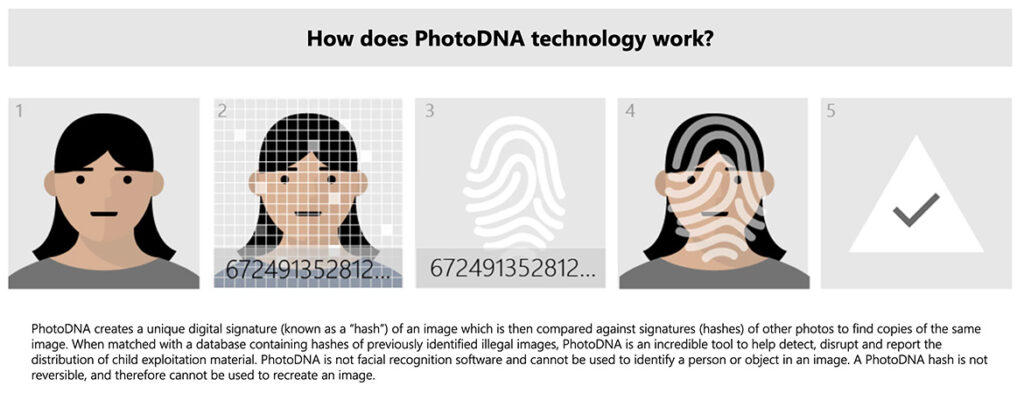Microsoft
Microsoft created PhotoDNA to detect, address and report online predators who attempt to lure other players, making the tool available to other companies at no cost. PhotoDNA and similar digital signature technologies have assisted in the detection, disruption and reporting of millions of images of child exploitation. If an image is flagged by PhotoDNA, the image is then referred to the National Center for Missing and Exploited Children (NCMEC) though the CyberTipline for investigation.

Anti-Grooming Technology
Microsoft collaborated to develop anti-grooming technology, known as “Project Artemis,” which it has made freely available to other online service companies through the non-profit Thorn. Project Artemis evaluates written text—for example, in-game chats—to determine whether the text demonstrates a series of characteristics that suggest wrongdoing. A key benefit of the technology is that it does not rely on the player to flag or report an issue. This is crucial in the case of grooming where a child might not understand what is happening or might be reluctant to report it. Project Artemis will continue to improve as more companies deploy it.

